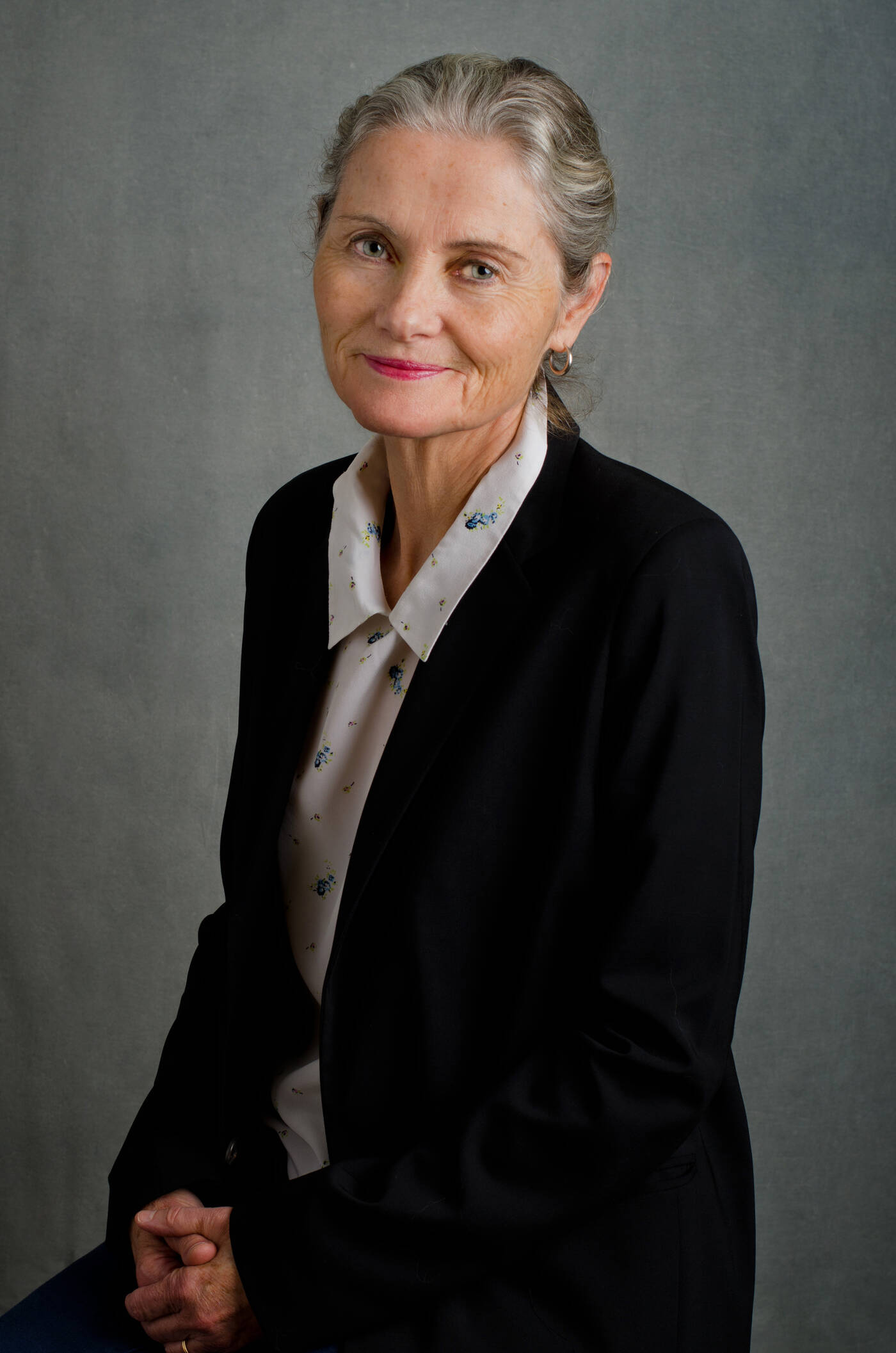Featured Faculty
Provost of Northwestern University; First Chicago Professorship in Finance, Kellogg School of Management; Professor of Finance

Yevgenia Nayberg
What does it take to lead an organization that relies on the creativity of hundreds of people? If you unexpectedly found yourself at the helm of such a place, would you be ready?
Kathleen Hagerty has held a lot of leadership positions in her nearly 35 years as a professor of finance at Kellogg. This includes serving as the director of the school’s PhD program, the chair of the finance department (twice), and the senior associate dean for faculty and research (again, twice).
Many of these roles are not publicly visible. But after former dean Sally Blount departed last year—and before incoming dean Francesca Cornelli arrives in August—Hagerty served in a very different, and far more visible, role: interim dean.

Hagerty sat down with Insight to reflect on this period before she begins her next position, as associate provost for faculty at Northwestern. She talks about how to lead an elite, research-based organization, how she has grown to love criticism, and why it’s so important to develop a “trusting lens.”
This interview has been edited for length and clarity.
Insight: Academic institutions are full of smart, driven people—each of whom may have their own agendas. So what is it like to lead an institution like that?
Hagerty: What you’re doing is you’re managing a group of creative people. It’s not like the person at the top says, “Okay, we’re all heading off in this direction,” and then we all like go in that direction. It’s a place where everything’s bottom up, and it relies on the creativity of a lot of different people. As leader, you have to manage that to create an environment where people feel like they’re really getting their work done.
Insight: Is that a more difficult task when you are in an interim role? Or are there some things that are actually easier to accomplish in an interim capacity?
Hagerty: You can’t make big changes because that’s not the right thing for someone in an interim position to do, but you want to keep the school moving forward. It’s dispiriting for the staff and for the faculty to feel like the school is standing still. So, I think it is really important to make sure that everybody knows it’s okay to keep going.
You also want to set things up as nicely as possible for the new dean. If some cans were kicked down the road, you sort of pick them up before the new person gets here.
Finally: This wasn’t intentional but having a break between the former dean and the new dean did have some benefits. Sally did a wonderful job and had a tremendous positive impact on the school. This year allowed people to be introspective about what they’ve been doing and what they wanted to do in the future. With an interim dean, faculty and staff are a little freer to do this because they’re working with someone who’s not their boss in the long run.
Insight: We at Insight have written a lot about the importance of self-reflection. I wanted to ask you about your own introspection process. Do you have time that you carve into your day to just kind of think—to take a break from meeting after meeting after meeting? How do you get your reflection in?
Hagerty: Well, I traditionally have not been that kind of a person. I’m a finance professor, and in finance we don’t spend a lot of time thinking about our journey. You know? That’s just the culture. But this year I have spent a lot of time around alumni and staff, who do spend more time thinking about reflection. So when they’re doing it, it makes you want to think about it too.
Until this year I hadn’t thought about it this way, but when you’re a leader, you kind of have a role—and I mean role like acting role. And my role was to be somebody who’d been at the school for a really long time, who really knew a lot about the school, who knew everybody at the school. My role was to demonstrate that everything’s under control and we can handle everything that comes up.
Insight: Did you intuit before the year started that that would be your role, or was that something that you grew into over the course of the first couple of months, after introspection?
Hagerty: Actually, some of the people I work with subtly suggested that to me. They would introduce me as having been here for over 30 years. So, they kind of put it in my ear, and then after a while I thought, “Oh, this actually does really work.” To be a leader you have to have expertise. You have to have some credibility, and so what was going to be my source of credibility? My source of credibility is that I’ve been a faculty member here for a really long time, and I’ve had a lot of leadership positions in the school.
Alice Eagly, who’s a professor in the psych department at Northwestern, has written books on women’s leadership, and one of the things she’d always say is that part of being a leader is people accepting you as a leader. And so, it isn’t just what you do—you need something about your position that will lead them to accept you in that role.
Insight: Being interim dean doesn’t mean you avoid making any tough decisions. You’ve almost certainly had to have difficult conversations this year. What is your strategy?
“Part of being respectful is just being really honest. People know they’re going to get bad news occasionally. But it’s not like they can’t take it.”
— Kathleen Hagerty
Hagerty: I like to be really open and straight with people. I’m kind of “one speed” in that way. So sometimes I may think, “Well, what’s the best way to help someone?” or “What’s the most tactful, respectful way to put it?”
But I think being really straight with people about what worked and what didn’t is a good way to go. Part of being respectful is just being really honest. People know they’re going to get bad news occasionally. But it’s not like they can’t take it. And then if they want to tell me why they think that we’re not making a good decision, I’m really eager to hear that.
Insight: You are eager to hear why you are wrong?
Hagerty: I actually love it when people complain because it makes me feel a lot safer if people can come down and tell me I’m wrong. Because you can’t think of everything.
Part of it is I’m a professor, and professors have a culture of criticism in the interest of improvement. If you understand it in that way, then it’s good. If you give a paper [to your colleagues] and nobody says anything negative, you think, “Man, they didn’t even care enough to come up with something to say about how I could make the paper better.”
So, that culture of criticism and comment is a sign of investment in the institution, in what you’re doing, and so if nobody says anything it’s either because they’re afraid or they don’t care, and both are bad.
Insight: You mentioned that faculty live in this culture of criticism. But it strikes me that Kellogg’s culture can manifest itself in different ways. There’s a sensibility that the tenure-line faculty might have. But other faculty members and staff members and students have different sensibilities. So how can you lead an organization where everyone is coming from a slightly different place?
Hagerty: When you work for a university there is a sense of mission that other organizations may not be as lucky to have. The mission of the university, and the mission of Kellogg, involves research, teaching, and engagement, and so there’s a sense in which we’re all kind of moving towards that.
Students are here to engage and be educated, and the faculty are here to teach them and to develop new knowledge, and the staff is here to integrate and promote all of those things. And I think one of the goals is to make sure that people understand the contributions that everybody makes.
Insight: How do you do that? How do you make everybody feel valued in an organization?
Hagerty: Actually, just thanking people goes a shockingly long way. It’s like giving somebody in the desert a glass of water. I think people don’t make as much of an effort as they should to just tell people that they really appreciate what they do.
I also think trust is a big deal.
There’s so much ambiguity in interactions. And some people have an incredibly benign interpretation of what happens. They always assume everybody is working for the group, and they have good will, and when something goes wrong they’ll just think, “Oh they just made a mistake, anybody can make a mistake,” and brush it off. And other people put a very negative interpretation on what happened: someone was self-interested or had bad will.
If you put a positive, trusting lens on things, things go much more smoothly. I always assume, genuinely, that people are going to do a good job, and I’ve very, very rarely been disappointed. When you hire someone or when you promise someone something, you go out on a limb with someone—and the number of times I’ve been burned for doing that is just tiny.
Keith Murnighan was a professor in the MORS department here; he did academic studies on trust. And he said, “If you trust them, they’ll trust you.” So, someone has to go first.
Insight: What does this “trusting lens” look like? How does it play out in your day-to-day interactions?
Hagerty: When you first come in, you sort of check a little bit about what people are doing, and then after that you say, “I genuinely trust you to do a good job. I’m not going to micromanage you. I’m not going to tell you what to do. I’m going to let you make some decisions about how to do things. And I’m confident that you’ll do a good job.”
And then if occasionally we’re a little out of sync, then we just correct. But most of the time I think one of the things people really like is that you trust them to do a good job. And I don’t blame them, because that’s what I like. That’s how I like to be treated too.
Insight: Do you have any advice for other academic leaders, interim or otherwise?
Hagerty: Academics is very flat in terms of leadership structure, and a lot of academic leadership is really helping your colleagues be as successful as possible: help them with their research, make sure you hire really great colleagues for them, make sure the group is as strong as possible.
It’s not like you’re their boss. I always say, when you do administration, it’s a real service thing, and the higher up you go, the more serving you do. But that’s how you make the university great: by making every member of the university as successful as possible.
People talk about Kellogg being all about collaboration. It sounds like just something you say, but it’s actually true: the school is full of people who work together extremely well. And I’m just continuously surprised and delighted by how devoted people are to the school, and how much pride they take in the work they do here.
But there’s so much more we can do. The world of elite business schools is very, very competitive, so it can be scary to navigate, but it’s really rewarding, and we have a great team to get it done.
But the new dean doesn’t need any tips from me. I know that she’ll do a great job.